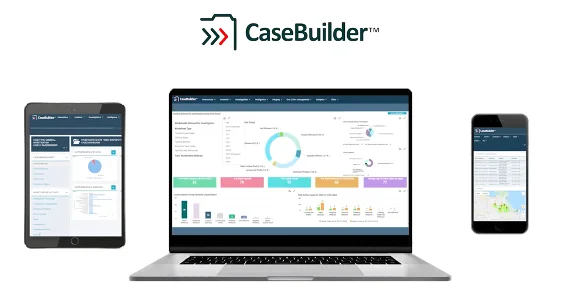The new Coronavirus (COVID-19) outbreak is shaping up to be a serious situation as the number of reported cases and deaths continues to climb. The most important thing is that citizens, healthcare professionals, governments, and law enforcement alike stay informed and prepared. In this blog, we take a deeper dive into the virus’ impact on law enforcement and Continuity of Operations (COOP).
The CDC is aggressively responding to the global outbreak of the new Coronavirus (COVID-19). For the most up-to-date statistics, a situation summary and other important things that you should know, click here.
Right now, things are still unclear about the transmissibility, severity, and other features of this virus; however, the CDC suspects that it is transmitted like the flu with possible person-to-person and surface-to-person transmission.
At this point in time, it’s also unclear how contagious this virus is. In some places of the world, it seems to be spreading with ease and at a sustained rate, while in other locations it doesn’t.
We should look at what is happening in South Korea and Italy and take these countries as a model – and warning – for what may occur here in the U.S. That said, if COVID-19 establishes a foothold in the U.S. and spreads to all 50 states and our territories, will law enforcement be able to sustain its Continuity of Operations (COOP)?
How Law Enforcement Can Prepare
Just as the public is at threat from this virus, so will law enforcement and all emergency responders.
So, what has your department or agency done to prepare to maintain your force levels and COOP?
Here are just a few questions that you and your agency should be asking and answering. By no means is this a complete list, but it should be a good start toward the preparedness for a COOP plan.
1. Does your agency have a plan?
This is a baseline question that you should ask to start the conversation. Within this step, consider the following questions, too:
- Does this plan include your employee’s families?
- Does this plan include emergency housing for your employees and their families?
- Does your plan include emergency transportation for your employees and their families?
- Does the plan include feeding your employees and their families?
- Does your plan include medical care for your employees and their families?
2. Has the plan been tested?
3. Is everyone trained on the plan? Does this training include your employee’s families?
4. Has your agency conformed to all applicable Occupational Safety and Health Administration (OSHA) or Environmental Protection Agency (EPA) regulations for its employees and their families, such as:
- OSHA 1910.134, Respiratory Protection. You can’t just issue an N95 respirator to your officers without conforming to all of the measures within this standard.
- OSHA 1910.120, Hazardous waste operations and emergency response.
There are many subsections of the above regulations that law enforcement departments or agencies are required to follow in order to protect their officers. Please take the time to review all of them.
5. Has your agency obtained all the required equipment to protect your employees and their families, such as: (Not a complete list)
- Respirators
- Protective Clothing:
- Suits
- Boots/Booties
- Gloves
- Chem Tape
- Decontamination Materials
- Bio-Hazard Waste Bags
Next Steps for Law Enforcement
If you are an active law enforcement officer and have no idea what I am talking about, it’s time for you to ask some questions of your department or agency. If you are an agency or department head and you are unfamiliar with what I am talking about, you need to get up to speed ASAP.
There is no need to panic. We have good historical data that can be studied, from a law enforcement perspective, starting from the Spanish Flu of 1918 and working through the H1N1, SARS, MERS, ZIKA and Ebola outbreaks.
There are also plenty of validated COOP models available from other emergency responder agencies and the military to assist with your agency’s preparedness for an outbreak of the COVID-19 virus. There is no need to reinvent the wheel.
Law enforcement agencies at the local, state, and federal levels should be coordinating their plans, training, finances, equipment, and manpower. In addition, law enforcement agencies should be working with all the other first responder agencies (Fire, EMS, Hazmat, Emergency Management, etc), healthcare (hospitals, clinics, and other healthcare providers), and public health departments or agencies.
Additional Reference Materials for Law Enforcement COOP Plans
Some good information on law enforcement COOP plans can be found in the following reference materials:
- CRITICAL ISSUES IN POLICING SERIES: Police Planning for an Influenza Pandemic: Case Studies and Recommendations from the Field, Andrea M. Luna and Corina Solé Brito Elizabeth A. Sanberg, October 2007, Police Executive Research Forum
- Law Enforcement Pandemic Influenza Planning checklist, September 2007, US CDC
- The Role of Law Enforcement in Public Health Emergencies Special Considerations for an All-Hazards Approach, September 2006, Edward P. Richards, Katherine C. Rathbun, Corina Solé Brito, and Andrea Luna, U.S. Department of Justice, Office of Justice Programs, Bureau of Justice Assistance and the Police Executive Research Forum
- Pandemic Influenza Continuity of Operations Annex Template, US DHS, FEMA
Remember, in addition to civilian lives, our officers’ lives are at stake here – and so is the safety of the communities we serve.
Crime doesn’t stop just because there is a pandemic going on. Law enforcement will be tasked to do more than just protect our communities beyond day-to-day crimes.
Law enforcement operations during a pandemic will stretch our already limited resources to their breaking point. That’s why proper planning is critical.
Good luck, God Bless, and stay safe.





